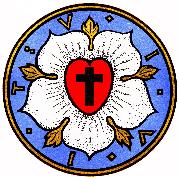 Unity and Division among Lutherans in South Africa
Unity and Division among Lutherans in South Africa Unity and Division among Lutherans in South Africa
Unity and Division among Lutherans in South Africa
There are 5 separate Lutheran churches in South Africa - not including the closely aligned Moravian church. This obvious lack of unity among Lutherans may be surprising to outsiders and I will attempt to explain a few of the reasons. As always, any opinions expressed her are purely my own.
There are two major divisive factors, both the result of historical developments, that divide Lutherans. These are:
Using these two factors one can divide the Lutheran churches in South Africa into 4 camps, as follows:

1) Structure
This is a uniquely South African development. Separate churches developed alongside each other: one for the settlers and one for the converted heathens. To maintain oder in their newly won congregations, the missionaries introduced a very strict hierarchical structure. This structure was retained by the newly-formed "black" churches and is still very apparent today in the strongly top-down approach of these churches.
In contrast, the settlers formed their own congregations after settling in South Africa. From the beginning they were the driving force behind their own congregations: they donated the land, they employed and paid their pastor, etc. Only slowly did loose federations of congregations (synods) become established, which later became churches. In these churches all power is held by the individual congregations. The highest body in the church is the bi-annual synod, which writes and votes on proposed church laws.
While the structural differences ran parallel to cultural and racial differences in the past. Unity across this dividing line is being attempted, but in the democratic new South Africa it is the hierarchical churches which are being challenged to change, rather than the more democratic, synodical ones.
2) Relationships to other churches
All Lutherans follow the teachings of Martin Luther. But the importance they attach to the Lutheran doctrines creates a division among them.
Most Lutherans will accept that other churches may have different views on certain doctrines, but co-operation with these churches is nevertheless being pursued. The Lutheran World Federation (LWF) and/or its member churches have been active in the ecumenical movement for many years, and dialog has been sought with many protestant, main-line churches (eg. the Reformed, Anglican/Episcopal, Presbytarian and Methodist churches) and the Catholic church. In most cases, anyone will be allowed to participate in Holy Communion, with the understanding that the individual is aware of the consequences and responsible for his/her actions.
A smaller group of Lutheran churches takes a stricter view on Lutheran teaching, and will not consider co-operation with other non-Lutheran churches. These churches are generally aligned to the International Lutheran Council (ILC) and are often referred to as Free Lutheran churches. They will generally allow only members of the local congregation to partake in Holy Communion.
There are also ultra-orthodox Lutheran churches, that are not aligned to the LWF or the ILC. These differences run through the broad Lutheran family across the world. The following table suggests how these alignments run across different countries:
Country |
LWF-aligned |
ILC-aligned |
Not aligned |
| South Africa | - |
||
Germany |
- |
||
USA |
|||
Canada |
LCC |
" |
|
Australia |
- |
||
In South Africa, the split in the churches occurred in 1891, when the Hermannsburg Mission re-aligned itself with the State church in Hannover. The Hermannsburg Mission had split off the Hannovarian church in 1878 because of fears that the Prussians (who had annexed the Kingdom of Hannover in 1866) were going to enforce a Lutheran-Reformed Union, as they had done in Prussia. The Hannovarian church remained Lutheran, though, and a compromise was reached between the Mission and the Church some 13 years later. Unfortunately, a number of South African congregations, pastors and missionaries were not convinced by the compromise and chose to separate from the Hermannsburg Mission. They aligned themselves to the Lutheran Free Church in Hannover, which subsequently founded the Bleckmar Missionary Society to further the missionary work it had now indirectly taken over in South Africa.
Many attempts have been made to breach the gap between the two Lutheran families, but in no country except Australia has such a Union ever been achieved.